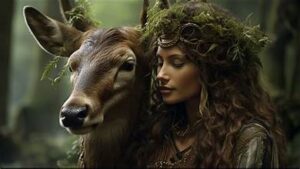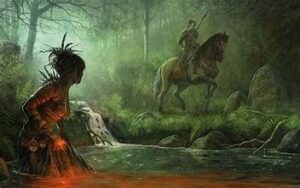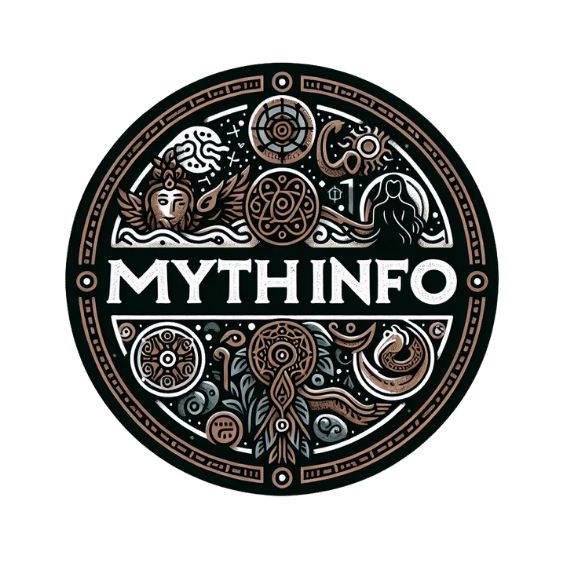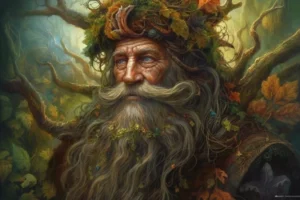In recent years, Celtic mythology has seen a resurgence in popular culture, manifesting across various media platforms such as films, television shows, and video games. This revival highlights a growing interest in ancient stories and traditions, which are being reimagined and celebrated in contemporary formats. This article delves into how Celtic mythology has been woven into modern pop culture, examining its impact and the reasons behind its enduring appeal.
The Celtic Mythological Revival
Celtic mythology, rich with tales of gods, heroes, and mystical creatures, has always captivated the imagination. Yet, its presence in mainstream media has fluctuated over the decades. Today, however, there is a noticeable resurgence. This revival can be attributed to several factors, including a global fascination with fantasy genres, a renewed interest in historical and cultural heritage, and the powerful storytelling capabilities of modern media.
Celtic Mythology in Films
Films have played a significant role in popularizing Celtic mythology. One prominent example is Disney’s “Brave” (2012), which introduces audiences to the legend of Scottish folklore through the story of Princess Merida. The film not only showcases mythical creatures like will-o’-the-wisps but also incorporates elements from traditional Celtic beliefs, such as the importance of fate and the supernatural.
Another film, “The Secret of Kells” (2009), combines Celtic mythology with historical events. This animated feature focuses on the creation of the Book of Kells, blending historical and mythical elements to craft a unique narrative. Its visual style, inspired by Celtic art, further enhances the connection between myth and modern storytelling.
Television Shows and Celtic Mythology
Television has also embraced Celtic mythology, often using it to enrich fantasy and historical dramas. The TV series “Vikings” (2013-2020) and “The Last Kingdom” (2015-2022) include references to Celtic myths and legends, highlighting the intertwined nature of Viking and Celtic cultures. These shows often depict mythological elements in the context of historical events, providing a nuanced portrayal of Celtic beliefs.
In addition, shows like “Merlin” (2008-2012) and “Penny Dreadful” (2014-2016) incorporate Celtic themes and characters, exploring the mythical aspects of the Arthurian legends and other folklore. These series reflect the versatility of Celtic mythology and its ability to adapt to various storytelling forms.
The Role of Video Games
Video games have become a powerful medium for exploring and reviving Celtic mythology. Games like “The Witcher” series and “Hellblade: Senua’s Sacrifice” draw on Celtic myths to create immersive worlds and narratives. “The Witcher,” for instance, integrates Slavic and Celtic folklore into its rich fantasy universe, adding depth to its storytelling and gameplay.
“Hellblade: Senua’s Sacrifice” is another notable example, featuring a protagonist whose journey through a mythical version of ancient Britain is deeply rooted in Celtic and Norse mythology. The game’s portrayal of mental health issues intertwined with mythological elements offers a profound exploration of Celtic culture and beliefs.
The Appeal of Celtic Mythology
The resurgence of Celtic mythology in pop culture can be attributed to several factors:
- Rich Storytelling Tradition: Celtic myths are filled with complex characters, epic quests, and moral lessons, which lend themselves well to modern storytelling. The themes of heroism, fate, and the supernatural resonate with contemporary audiences, making these ancient tales relevant today.
- Visual and Artistic Inspiration: Celtic art, with its intricate patterns and symbolic imagery, provides a visually striking aesthetic. This has been embraced in films, TV shows, and video games, where the art style helps to create immersive and atmospheric worlds.
- Cultural Nostalgia: There is a growing interest in exploring and preserving cultural heritage. Celtic mythology offers a connection to ancient traditions and histories, which appeals to both enthusiasts and those interested in their ancestral roots.
- Fantasy and Escapism: In an age where fantasy genres dominate entertainment, Celtic mythology offers a rich source of material for creating magical and fantastical worlds. Its incorporation into popular media allows audiences to escape into realms of myth and legend.
Conclusion
The revival of Celtic mythology in pop culture is a testament to the enduring power of ancient stories and their relevance in the modern world. From films and television shows to video games, Celtic myths are being reimagined and celebrated in new and exciting ways. This resurgence not only highlights the timeless appeal of Celtic folklore but also demonstrates its adaptability and significance in contemporary storytelling. As the interest in these ancient tales continues to grow, it is clear that Celtic mythology will remain a vibrant and influential part of pop culture for years to come.


